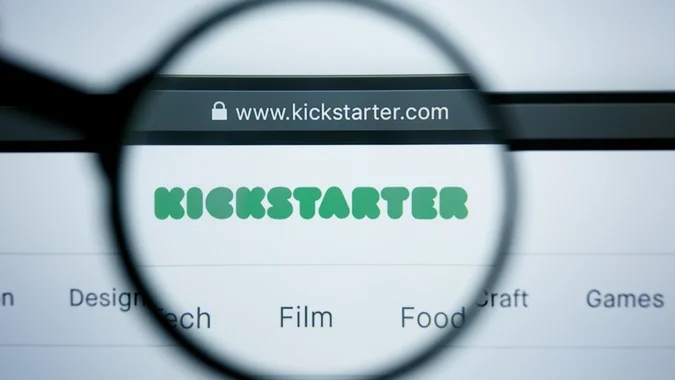Cover image by Cottonbro Studio via Pexels.com
Despite positive change and development within the creative industries, the post-pandemic era occasionally reminds us of its ongoing disruptions, affecting the resources many have relied upon in support of their creative endeavours. Independent filmmakers who already faced many challenges beforehand are now met with a greater burden in securing traditional means in financing their work within the UK due to the decline in support and financial success of independent films.
Finding funding for films has always been a challenge, more so for independent projects that heavily rely on creative grants offered by organisations such as Film Cymru Wales or seeking financial support from private investors. As the UK enters another recession, the cost-of-living crisis has presented itself as another blow towards independent filmmakers, with many private investors and companies already reconsidering their investments in independent film projects due to production costs increasing by around 20% during Covid-19. A further blow facing the sector is the funding cuts by the British Film Institution (BFI). Back in September of 2023, a 10-year strategy Screen Culture 2033 was revealed, heavily affecting the funding towards independent filmmakers. The new BFI Filmmaking Fund’s budget is around £18 million per year, a 28% decrease compared to the £25 million per year under the previous round of funding.
These financial and economic setbacks do pose a threat towards the ‘sustainability’ of the independent film sector, with many organisations voicing their concern about its future as it undeniably progresses towards “market failure”. However, this new reality has caused many independent filmmakers to look at alternative ways and practices towards financing their projects.
Crowdfunding has provided the independent sector with new prospects for finance and visibility, giving it reason to be optimistic. These creative environments, which are centred on community-based finance, provide an alternative to modern financial institutions and governments. These new internet platforms now provide independent creatives with access to a wide pool of donors to support their niches and small-scale initiatives, while circumventing traditional gatekeepers.
Independent filmmakers now have the opportunity to create and build their own community which has expanded their reach and possibilities for support and success beyond their friendnetworks. Crowdfunding has become an important source for creating value, these platforms as such have removed the middleman and created a more intimate bridge between the artist and its audience. Unlike traditional practices of filmmaking, crowdfunding allows individuals or project backers to participate in the films development as they receive updates on the project’s progress. Most crowdfunding projects in exchange for support reward their donors by creating packages. These rewards vary depending on the amount donated, acknowledging the individuals participation towards the project.
Crowdfunding has given the independent filmmakers greater creative freedom and control over their projects. Some traditional settings would see filmmakers wait months before receiving news if their funding was approved or not. These Platforms now allow creatives to set financial targets, whereby they can visually monitor their progress. Other benefits of these platforms such as Kickstarter, Seed&Spark, and Greenlit ensure your visibility by creating creative-only spaces that give filmmakers a better chance of funding, while other crowdfunding platforms such as Filmocracy offer a streaming service for filmmakers to showcase their finished works.

However, the guarantee of funding through these platforms is not as simple as it may seem. This community-based funding requires filmmakers to build online communities through other social media platforms such as Facebook, Twitter, and Instagram as the crowdfunding space alone won’t guarantee the financial support and success of the project. In effect, the use of other socials stimulates a type of “herding”, as new contributors are likely to follow the actions of earlier donors due to peer influence, which has been shown to produce a better successful rating in projects meeting their financial targets.
Filmmaker Isaac Tomiczek ( I Just Stabbed Someone, and Tyler) took to setting up a Kickstarter to fund his project Blockbuster Boys. Tomiczek’s previous works had received backing from grants and investors yet when asked in an interview why the shift to using a crowdfunding platform, his response echoed the growing concerns for the independent film industry.
A few years ago, development funds in the UK film industry were rife… Post-Covid, that culture is nearly non-existent in the UK – Isaac Tomiczek
Unfortunately, despite his best efforts, Tomiczek was unsuccessful in reaching his financial goal.
The campaign itself managed to raise £37,134 of its £39,000 target backed by 231 donations. Despite 95% of the funding raised, due to Kickstarter’s “all or nothing” policy, any campaign that fails to reach its financial target within the 30-day window will lose access to all made pledges.
The current climate within the creative industries is proving to cause a significant strain on funding that might potentially affect the future sustainability of independent filmmakers. Crowdfunding in many ways has been a saving grace in opening forms of funding, whereas other means are no longer possible. However, with many filmmakers turning to platforms such as Kickstarter with a high failing rate of 60%, “Film and video” contributing to 30% of projects seeking funding on the platform, conversations within the industry must take place in looking at alternatives in finding ways to support independent filmmakers to protect the future of the independent film industry.
All images and media are used under fair usage for educational purposes.
